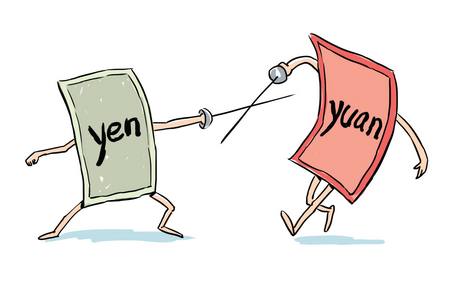Japan's currency policy aimed at pressuring yuan

The recent bold currency intervention made by the Japanese government has aroused global suspicion and unease. From a Japanese perspective, the lame duck finally mustered courage to redefine its economy proactively. However, not everyone has a clear idea of what Japan has done and what kind of repercussions will be felt.
After Japan intervened in the yen exchange rate by selling billions of dollars on September 15, which immediately drew international attention, Japan decided to return to its zero interest rate policy (ZIRP) at the beginning of October. Its economic ramifications does not only lie in the long-term money supply, but also in the currency regime.
ZIRP, as a monetary tool, seems to be Japan's last resort in the face of its long-standing and painful deflation.
However, without a clear commitment to fiscal expansion, given Japan's stable interior economic structure, ZIRP is unlikely to inflate the economy. The true purpose is to enable the government to weaken the yen indirectly.
The yen intervention seemed to boost the export economy, given the nominal exchange rate of the yen against dollar was at a 15-year high. This is an inaccurate interpretation.
An analysis on the basket of Japans' major partners' currencies against the yen, which genuinely pertains to the Japan's trade surplus, shows that the yen isn't at its historical apex.
Furthermore, foreign exports only account for 17 percent of Japan's GDP. Therefore the trade surplus presumably brought by currency devaluation is marginal. In fact, exports aren't the antidote to Japan's economic woes at all.
Japan also understands this point. Its intervention only halted the yen's ap-preciation for less than a week.
Thus, if the ZIRP isn't about economic buoyancy and temporary devaluation isn't about export, why is Japan so determined to intervene?
The answer is about its currency strategy, which is based on upholding the position of the yen in the international financial pyramid and sustaining a strong yen against the dollar, but meanwhile preventing the yen from being too aggressive.
The intervention is a strategic self-adjustment.
 0
0 






